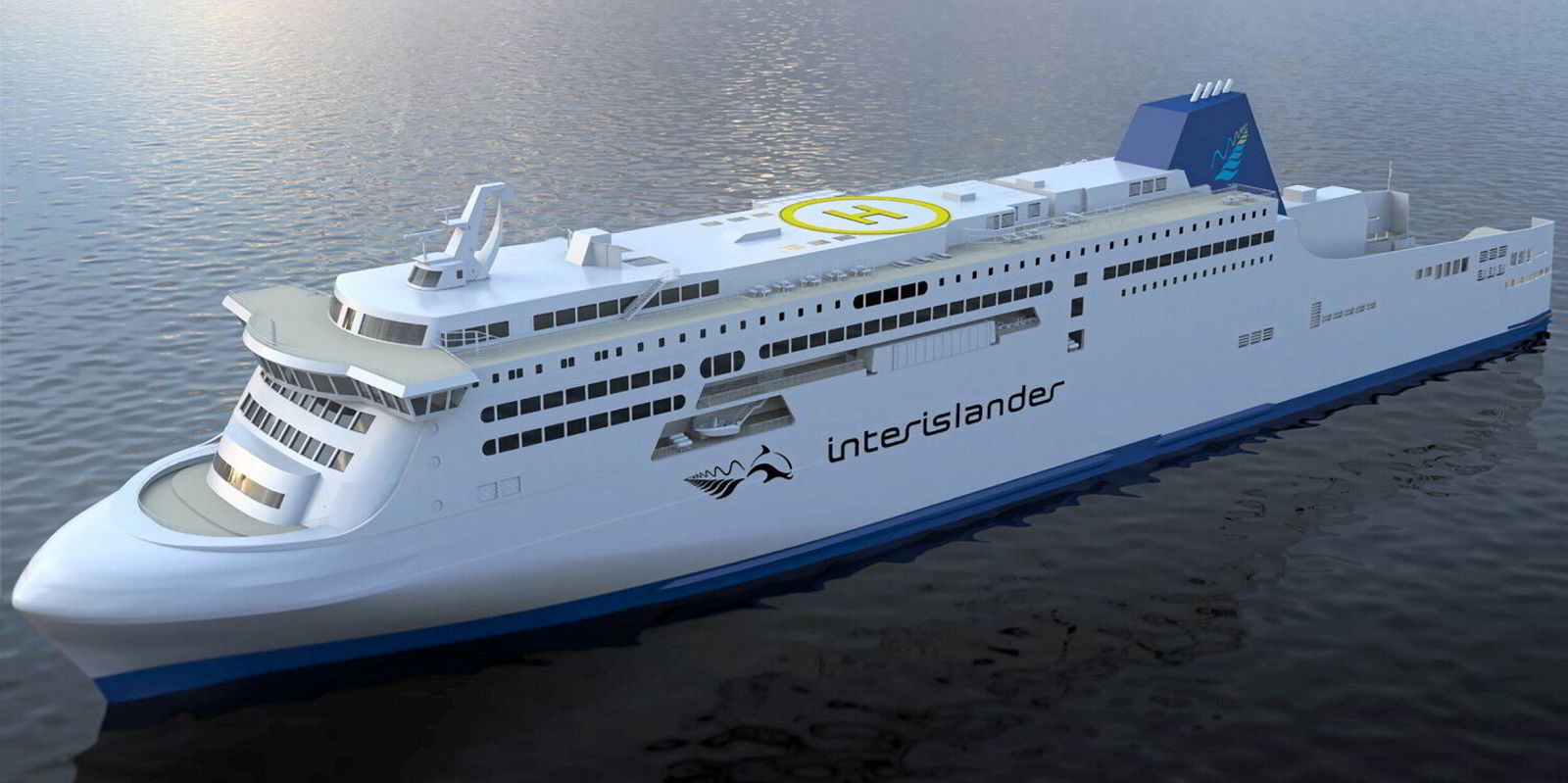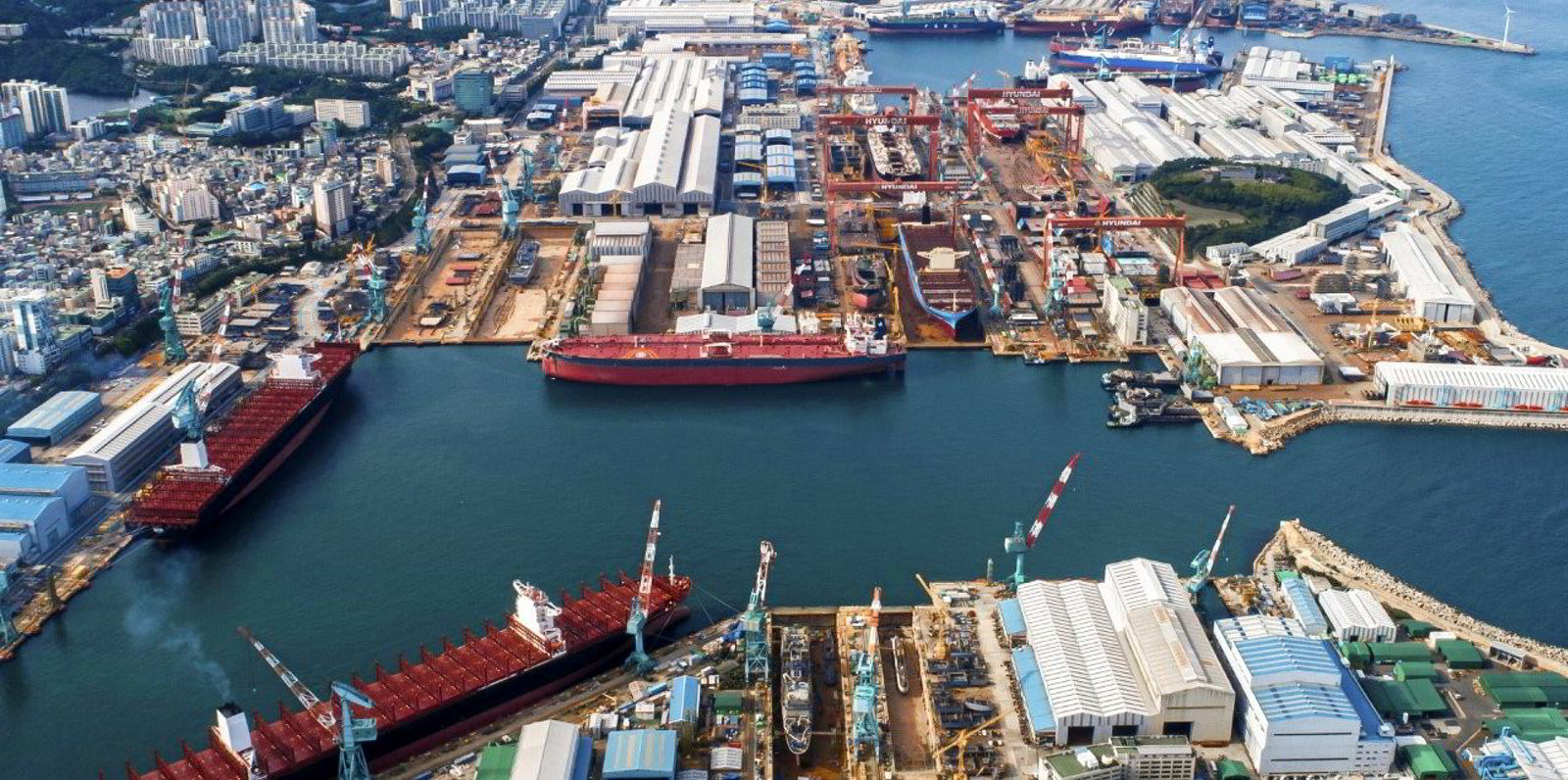New Zealand rail and ferry operator KiwiRail says it has to examine its options for a pair of ropaxes on order at South Korean shipbuilder Hyundai Mipo Dockyard after a request for additional government funding was denied this week.
Nicola Willis, the country’s finance minister, refused to provide NZD 1.47bn ($917m) for the Inter-Island Resilient Connection (iReX) project that involves construction of two 53,500-gt ropaxes along with new terminals and infrastructure in the ports of Wellington and Picton.
The additional funding would have covered rising costs related to associated ports and terminals infrastructure.
Willis said that while the government remained “committed to a resilient, safe and reliable Cook Strait connection”, costs had almost quadrupled since 2018 to about NZD 3bn, of which only 21% was associated with the core project of replacing the existing ferries.
“Ministers do not have confidence that there will not be further increases and are concerned about the continued significant cost blow-outs and the changing nature of the investment they are being asked to make,” Willis said, adding that agreeing to KiwiRail’s request would reduce the government’s ability to address domestic cost pressures and the funding of other essential projects.
KiwiRail said in a statement on Wednesday that without the funding, it had no choice but to “wind down” the iReX project and review its plans for the Cook Strait connection.
“Unfortunately, we cannot proceed without further government funding,” the company said. “We respect the government’s role as shareholder and funder to make this decision.”
KiwiRail ordered the ropaxes at Hyundai Mipo in June 2021. Steel cutting for the vessels is scheduled to begin in March 2024, with keel laying to take place in August. Both are due for delivery in 2026.
The diesel-electric hybrid systems selected for the two ships have been designed to reduce emissions by 40% compared with the company’s existing fleet of three conventional but ageing ropaxes, while at the same time increasing overall capacity on the route that links the road and rail networks of the country’s two main islands.
Although construction of the vessels has not begun, KiwiRail has already ploughed NZD 400m into the project.
Chief executive Peter Reidy told media outlets on Wednesday that the company would have to examine its options. He said these range from completing the ships without additional government funding to cancelling the contracts or selling them to another ferry operator.
Cancelling or selling the contracts would require KiwiRail to source new, less-efficient tonnage from the secondhand market that would require costly and extensive rebuilding work to suit the Cook Strait route’s requirements.
Asked by the Morning Report news channel about potential penalties KiwiRail might incur with Hyundai Mipo, Reidy said the company’s management team still had to sit down with its board and “work through what are the options with the shipbuilder”.
“Do you carry on building it and sell it? Could you sell it as it is right now? There’s a number of commercial options, we’ve got to sit down with other players,” he said.
Reidy, who described Project iReX as one of the most complex marine engineering projects undertaken in New Zealand “for some time”, blamed the project cost increases on changes in the seismic and flood modelling requirements, which resulted in the land at the new terminal site in Wellington having to be lifted by one metre, along with significant infrastructure cost rises.
KiwiRail’s three ropaxes that operate across the Cook Strait have an average age of 26 years and have faced several major mechanical issues in recent years, leading to lengthy service disruptions. The punishing route these vessels operate crosses what Reidy described as one of the most dangerous stretches of water in the world.
Four of New Zealand’s transport unions lashed out against Willis following the government’s decision and have demanded her resignation.






